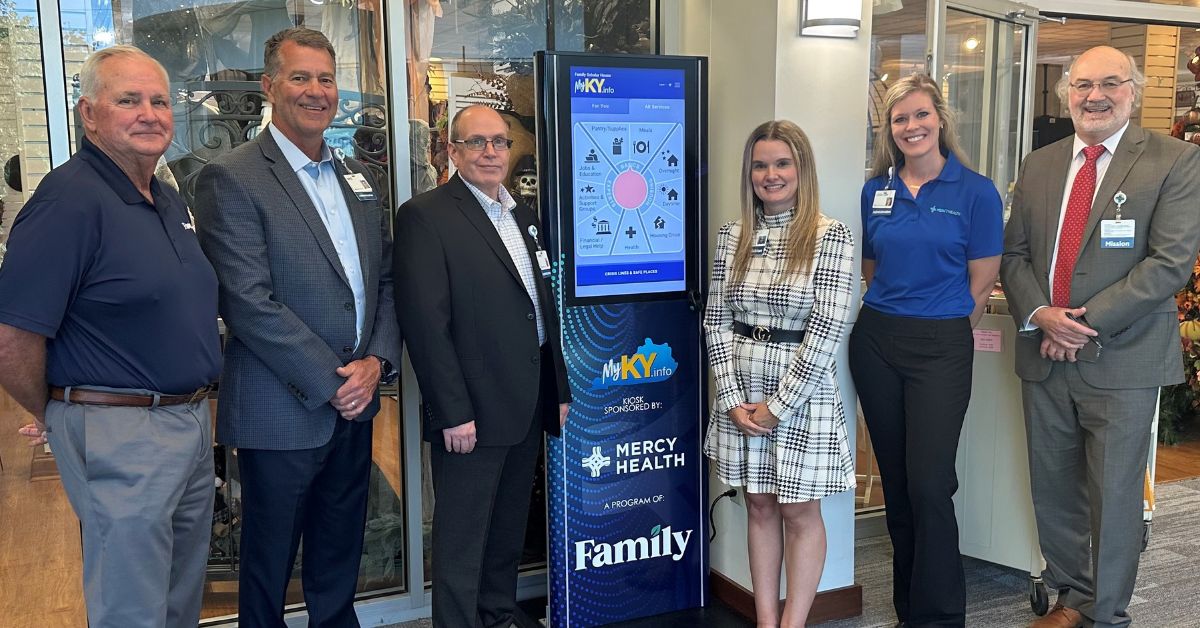Fighting the opioid epidemic in Ohio and Kentucky
Each day in 2017, an average of more than 10 people died from drug overdoses in Ohio – the deadliest year ever. As Ohio’s largest healthcare system, we’ve found ourselves fighting on the frontlines of the region’s opioid epidemic.
One of the main ways we have done this is through SBIRT (Screening, Brief Intervention and Referral to Treatment) screenings. Mercy Health has conducted more than 28,000 of these screenings. In the Cincinnati region alone, they’ve generated more than 1,500 referrals for treatment.
SBIRT screenings have helped women and men of all ages, income levels and ethnic backgrounds begin to treat their vexing illness. Some found rays of hope as they journeyed away from a dark path of self-destruction.
While we keep our eyes on the success of SBIRT initiatives thus far, we’re also aware of the fact that the opioid epidemic isn’t slowing down. An analysis of death records by WCPO in Cincinnati showed that synthetic opioids – including fentanyl and the elephant tranquilizer carfentanil — are rapidly replacing heroin as the top killers.
“The deadly drugs, purchased in some cases by local dealers on the Internet from illegal drug makers in Canada and China, are 10 to 10,000 times more powerful than heroin — and they’re flooding Ohio communities,” WCPO reported.
Expanding SBIRT screenings
One way we’re combating the opioid epidemic is by expanding the SBIRT screening process to all our emergency rooms across Ohio and Kentucky. Our 30-plus facilities, which treat nearly 1 million patients per year, will follow consistent protocols when patients show signs of addiction or drug abuse.
This helps our doctors to more consistently and proactively identify patients struggling with substance use disorder. When we find someone at risk for addiction, a nurse or addiction specialist can refer them for treatment. Caregivers also help patients understand treatment options.
We implement SBIRT via the patient’s electronic medical record (CarePATH/MyChart). We give patients a detailed substance abuse prescreen questionnaire at the start of their first visit. Based on the prescreen response generated in the patient’s electronic medical record, our staff determines next steps.
SBIRT helps normalize an often-difficult conversation for patients and caregivers. The protocol aims to decrease the stigma attached to discussing alcohol and drug use.
We also developed an evidence-based order set and nursing assessment in our electronic medical record to facilitate inpatient treatment and/or symptom management for patients experiencing withdrawal.
As a part of this initiative, HIMSS Analytics recognized us for our recent validation as a Stage 7 hospital, based on the Electronic Medical Record Adoption Model (EMRAM).
As Brian Gray, director of business development for Mercy Health’s Behavioral Health Institute, told WCPO: “When you have someone who is addicted to opioids, they’ve usually burned a lot of bridges in their life with family and friends. They really need someone who can help make that soft handoff while they’re in the emergency room to help them consider treatment options.”
The strategy is vastly different than what has been the typical practice of most emergency departments in the U.S.
“What used to happen is someone would overdose on heroin, get revived by Narcan and be sent to the emergency department,” Gray said. “The nurses or doctors hook them up to the medical monitor and stabilize them — maybe the doctor would tell them that, ‘You need to do something about your drug problem,’ but once they were stable, they were free to go. Instead of letting them walk, we take time to do a brief intervention and it’s making a big difference.”
Through this, we hope to change the culture of emergency rooms, and help patients realize that it’s okay to discuss this and other difficult topics. If you or someone you know is struggling with opioids, we’re here to help. Visit mercy.com or call 513-952-5000 to speak to an expert, compassionate caregiver today.






